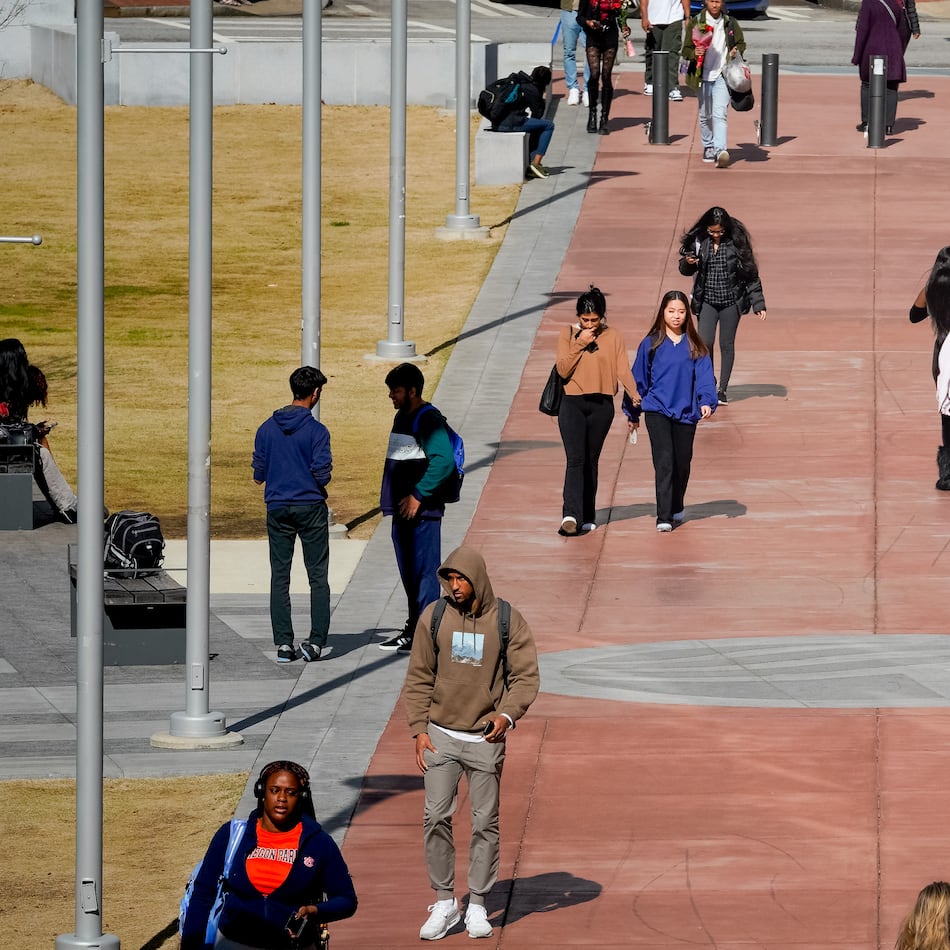Hustler Magazine's request for crime-scene photos of the decapitated body of hiker Meredith Emerson was met by outraged lawmakers who vowed on Monday to push legislation exempting such photos from public release.
House Speaker David Ralston (R-Blue Ridge) called the pornographic magazine's request "sickening and disgusting and vile." He talked Sunday with Emerson's mother and said she was "extremely distraught over the possibility that this could even happen." The speaker urged the GBI not to release the photos of Emerson's nude and dismembered body.
John Bankhead, a GBI spokesman, said the agency declined the request and said the intent of the Georgia Open Records Act prohibits the release.
"This is just an affront to the victim's family," Bankhead said. "It's incredible that anybody would ask for something like this."
In a statement, Hustler said the photos would be used in a news story about the crime. Hustler and its publisher, Larry Flynt, disagreed with the GBI's position "and are exploring all legal options available to them should the decision be made to go forward with this story."
The controversy raises anew questions over the public's right to know against the right to privacy of an individual, in this case a victim's family.
State Rep. Jill Chambers (R-Atlanta) said she will introduce legislation to make sure crime-scene photos like Emerson's never can be obtained through Georgia's public-disclosure laws. Her bill would exempt requests for photos that, among other things, depict nude bodies.
"Meredith has no way to give permission to have her body exposed and lusted after by people who derive pleasure from this," Chambers said.
Ralston said he would name the bill the "Meredith Emerson Privacy Act."
Emerson, a 24-year-old University of Georgia graduate from Buford, was abducted Jan. 1, 2008, while hiking with her dog Ella on Blood Mountain trail in North Georgia. Florida-born vagrant and Army veteran Gary Michael Hilton beat Emerson to death and cut off her head. Prosecutors agreed not to seek the death penalty against him if he took investigators to Emerson's remains. Hilton, now serving life in prison, is awaiting trial for decapitating a Florida woman.
The publication of crime-scene and autopsy photos has prompted widespread controversy.
In Florida, judges have refused to release Dale Earnhardt's autopsy photos, agreeing with the race car driver's widow that making the pictures public would cause the family pain. Georgia's Open Records Act prohibits the release of autopsy photos unless consent is obtained from a victim's family or a court order finding that the public benefit of the photos' disclosure outweighs the family's privacy interests.
A California appeals court recently criticized the state highway patrol's release of grisly photos of Nikki Catsouras, 18, who died in an Oct. 31, 2006, crash while driving her father's Porsche. Photos of the teenager's decapitated corpse were published on more than 2,500 Internet Web sites. In a Jan. 29 decision, the California court said the release of such photos "would cause devastating trauma" to the Catsouras family.
Atlanta attorney Bob Rothman, who practices First Amendment law, said he understands the outrage over Hustler's request. However, he said any exemption to the state Open Records Acts should be limited and not unduly restrictive to public access. "It's important not to let any one request, no matter how repugnant, jeopardize the public's right of access to public records," he said.
Charles Davis, executive director of the National Freedom of Information Center at the University of Missouri, agreed.
"Having access to ghoulish crime-scene photos that most anyone would not even for a second -- not even for a second -- want to see might be very, very important for certain requesters because there might be public interest in the photographs," Davis said. This could include someone who is investigating a suspicious death that a coroner has ruled was caused by natural causes.
"There could be reason to believe it was a murder and those photos could be important," Davis said.
Hustler's request was made last month by Fred Rosen, a true crime author currently on assignment to the magazine. He requested crime-scene photos as well as other documents, including a transcript of Hilton's confession. The GBI declined to release photos depicting Emerson's body, saying they "would be an actionable invasion of privacy."
On Monday, Rosen said he wanted to use the photos as a reference to better understand what happened. "I'm trying to get to the best obtainable version of the truth," he said.
As for whether the photos would ever be published, Rosen said, "It's up to the editor to make that decision."
About the Author
Keep Reading
The Latest
Featured

